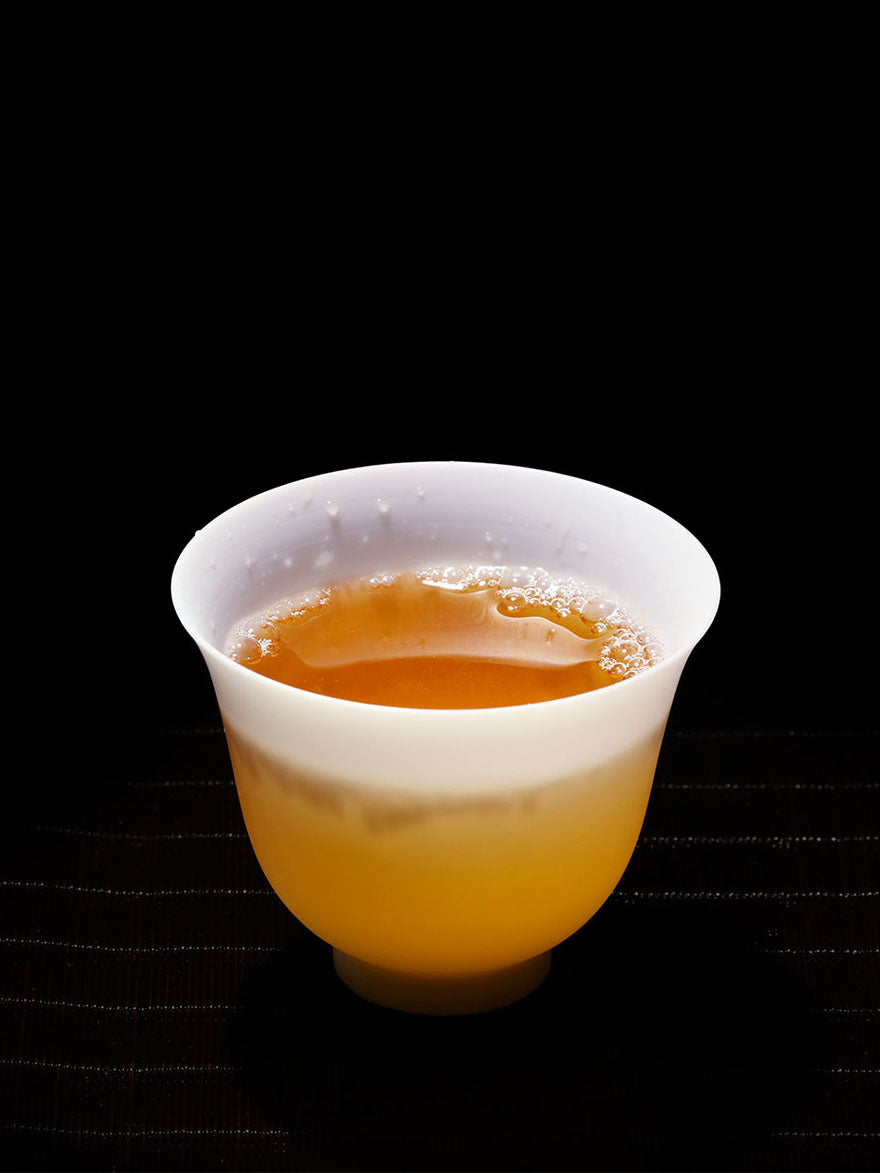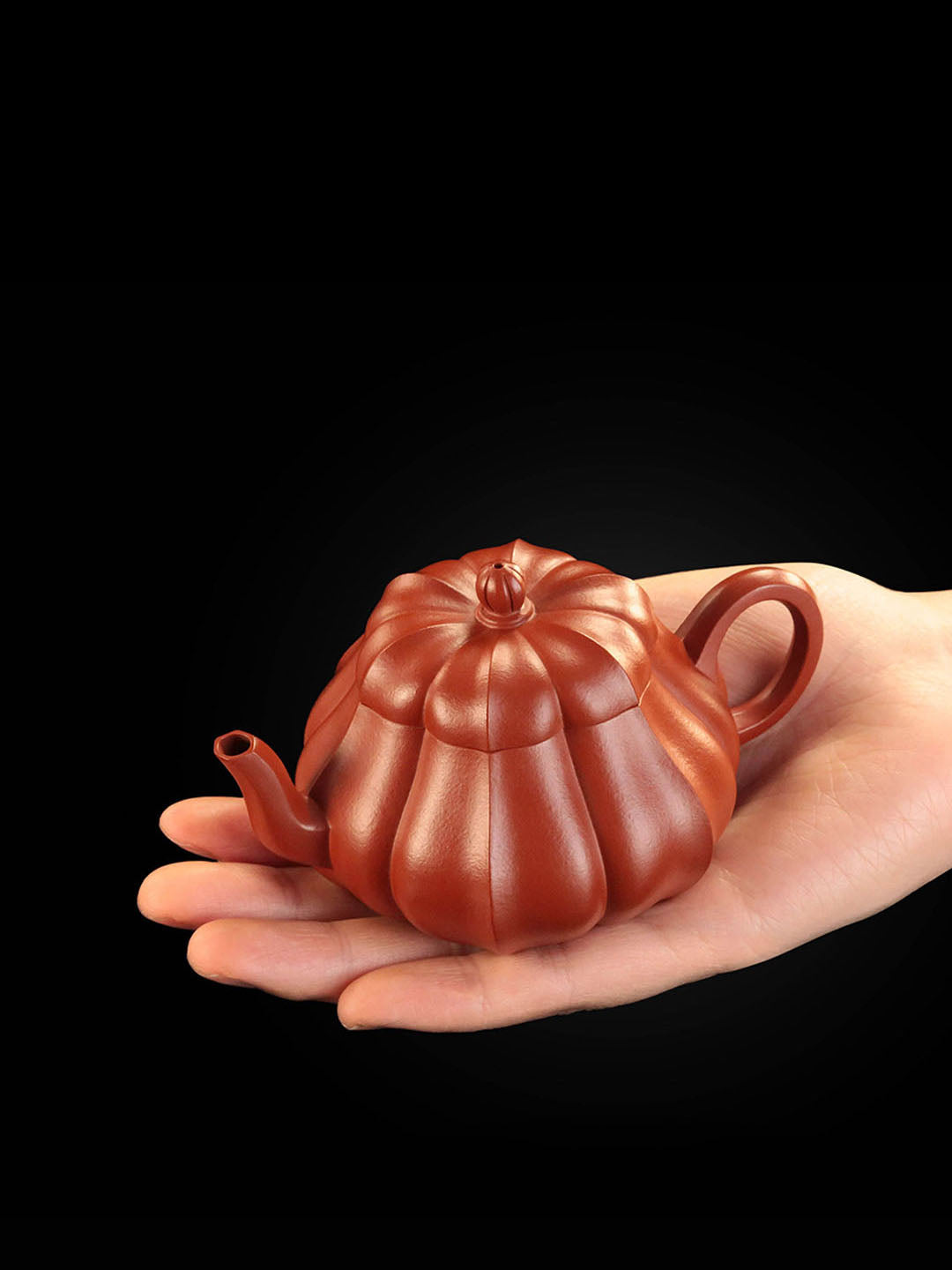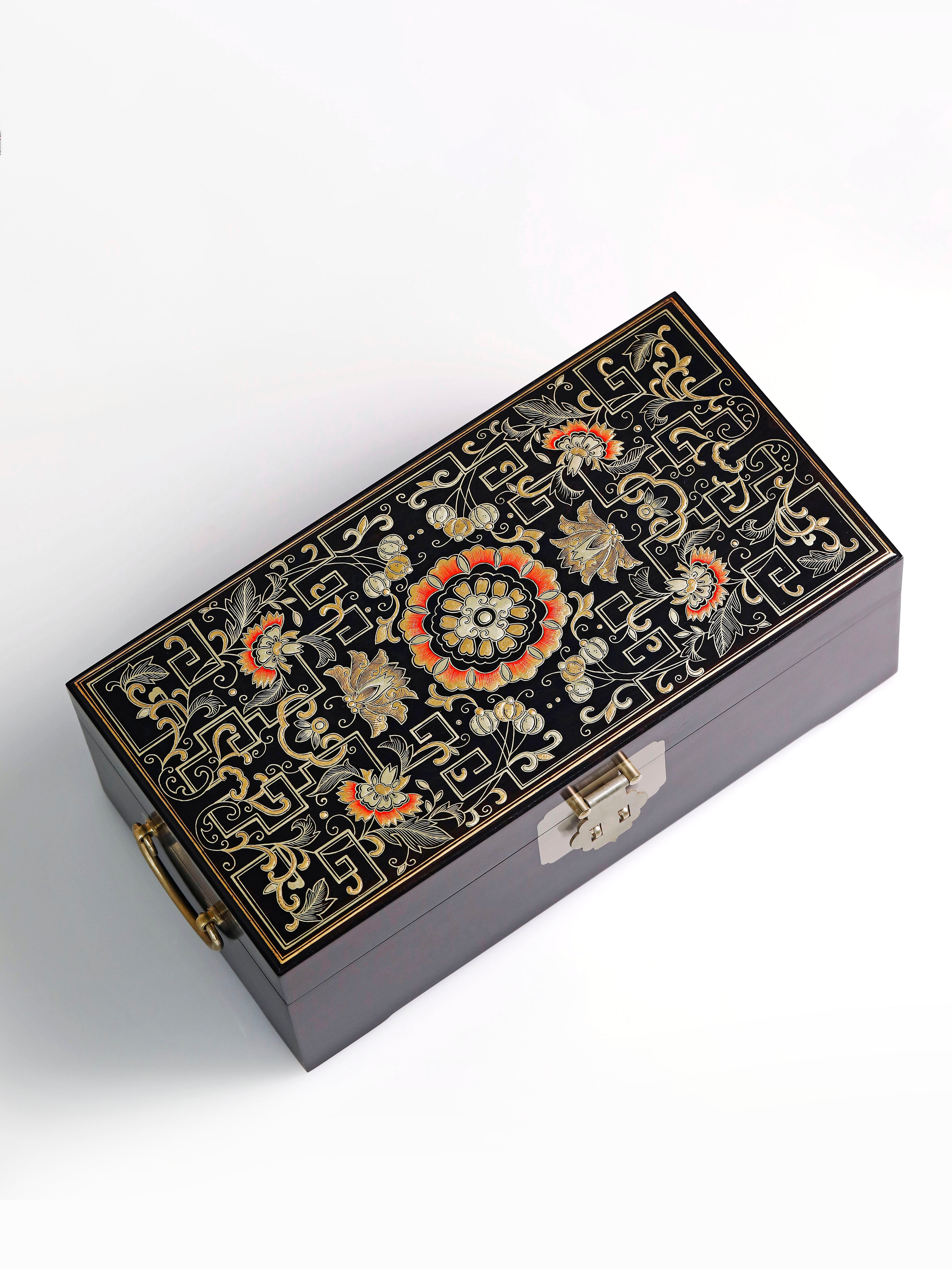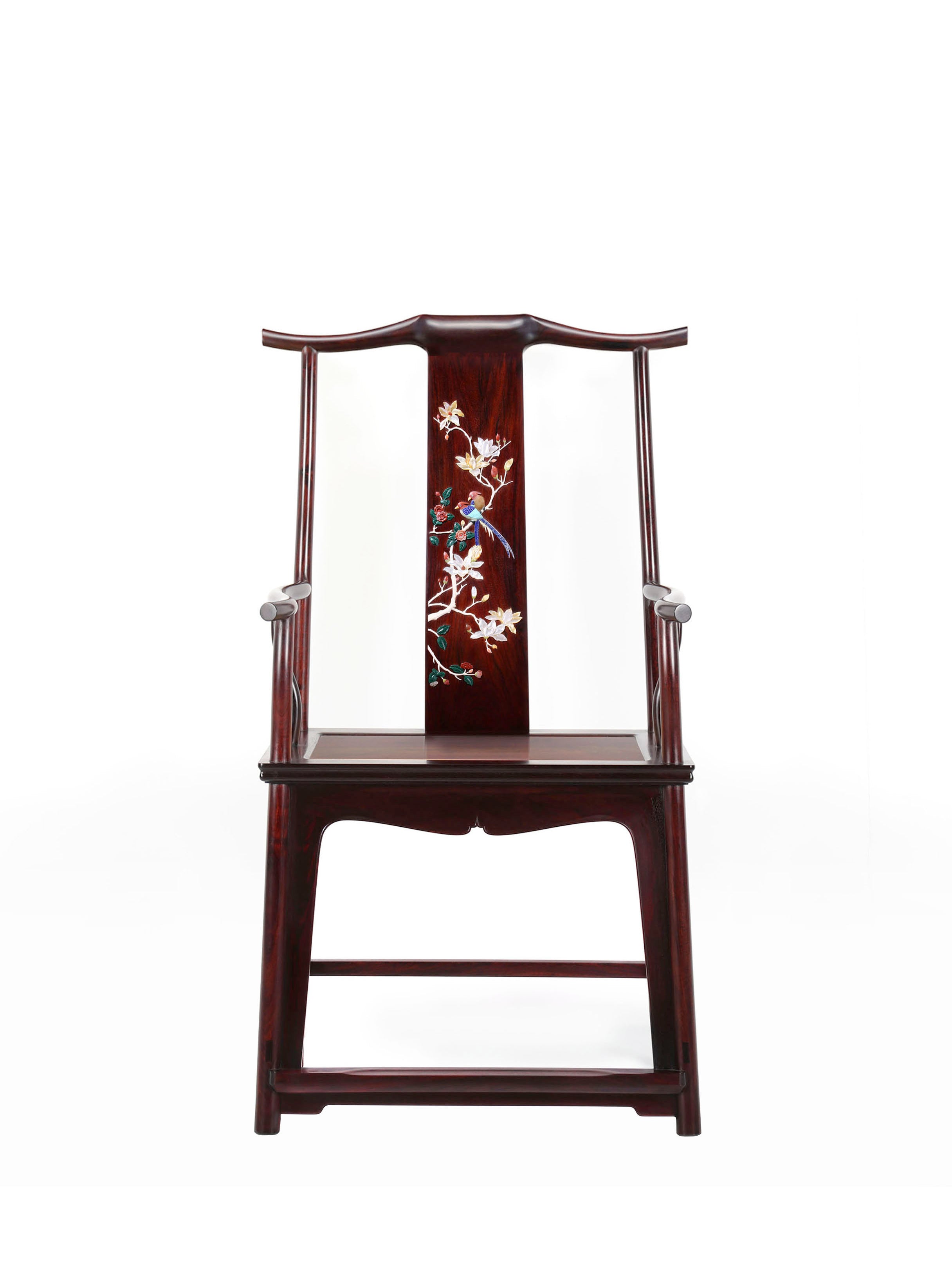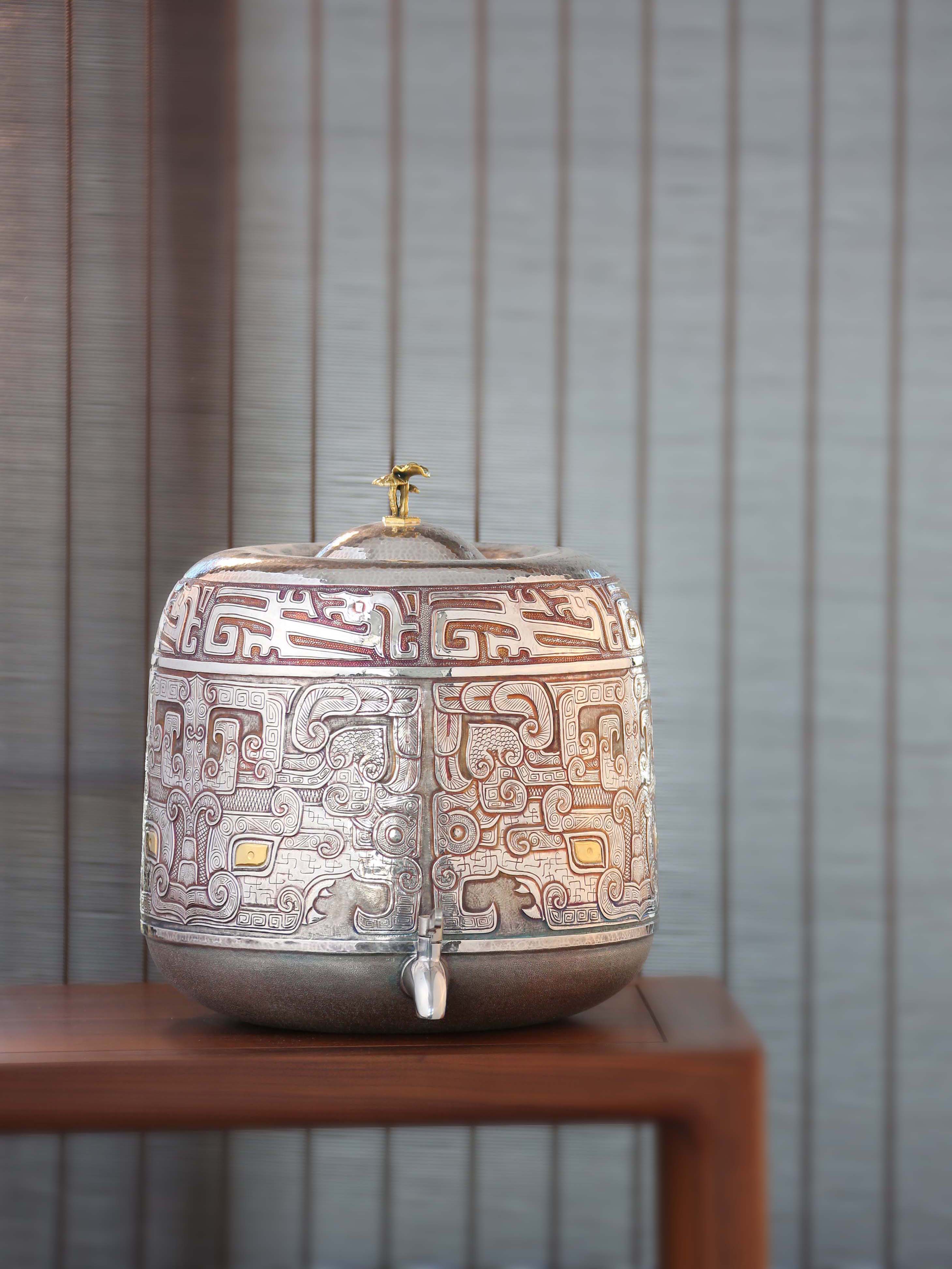

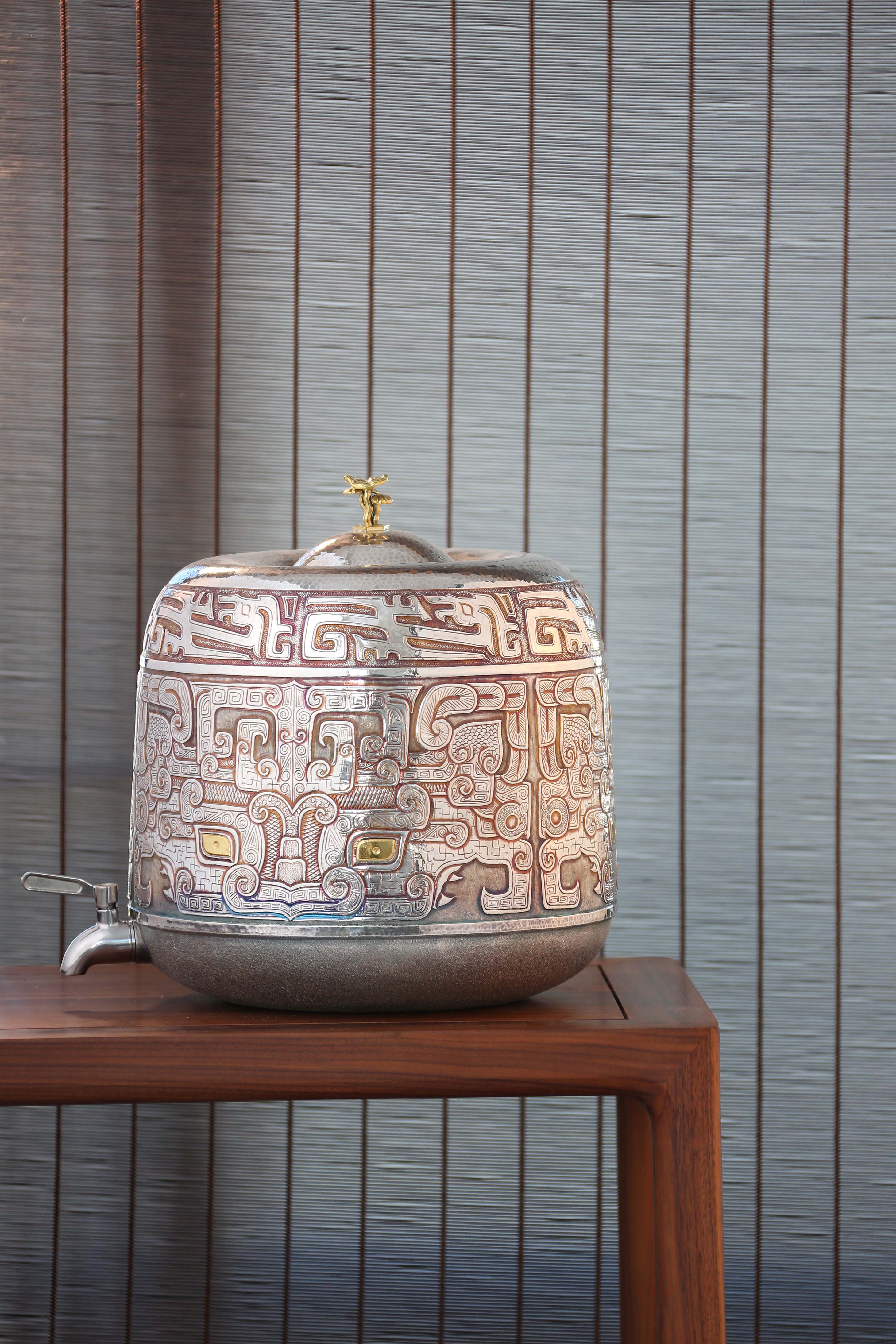
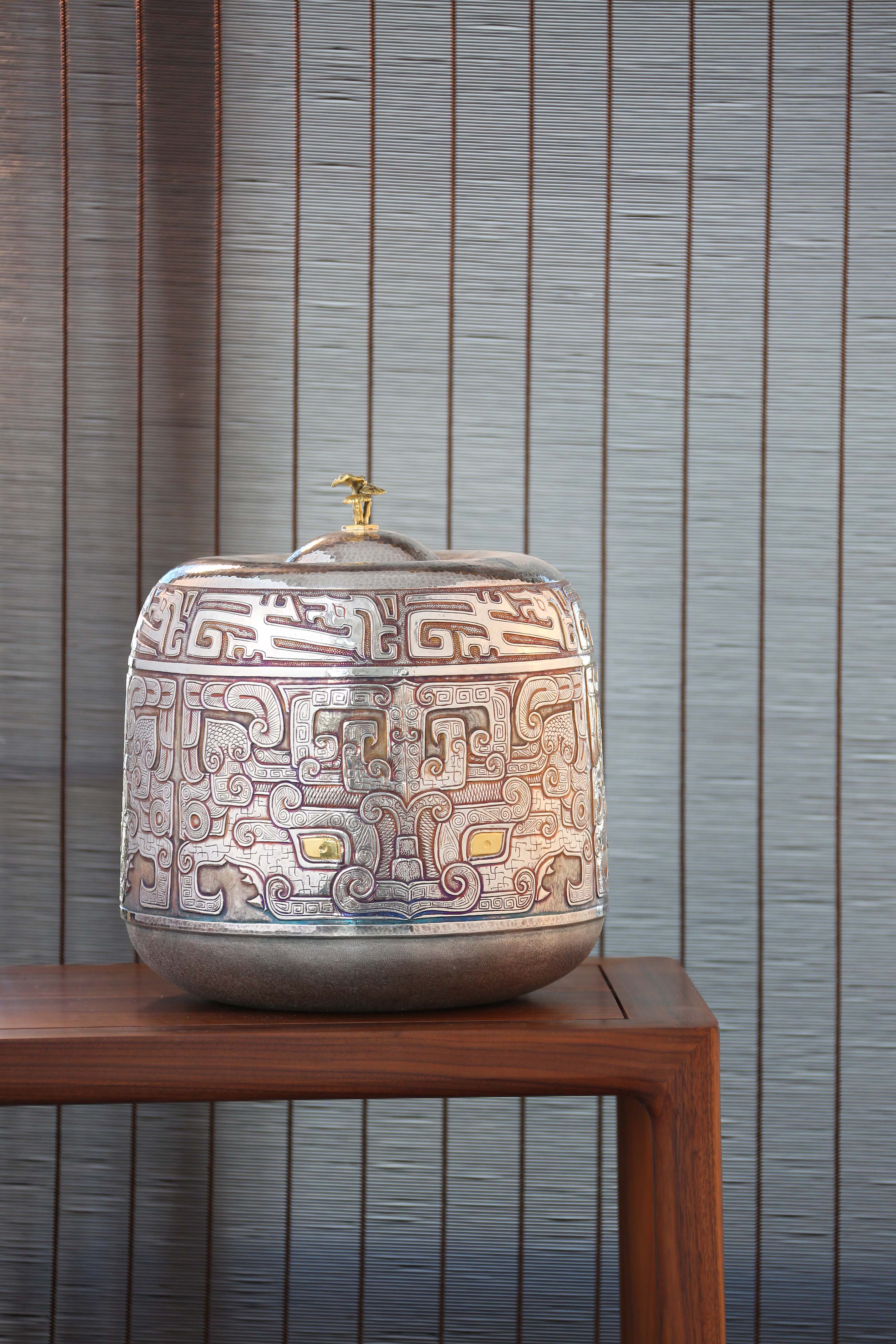
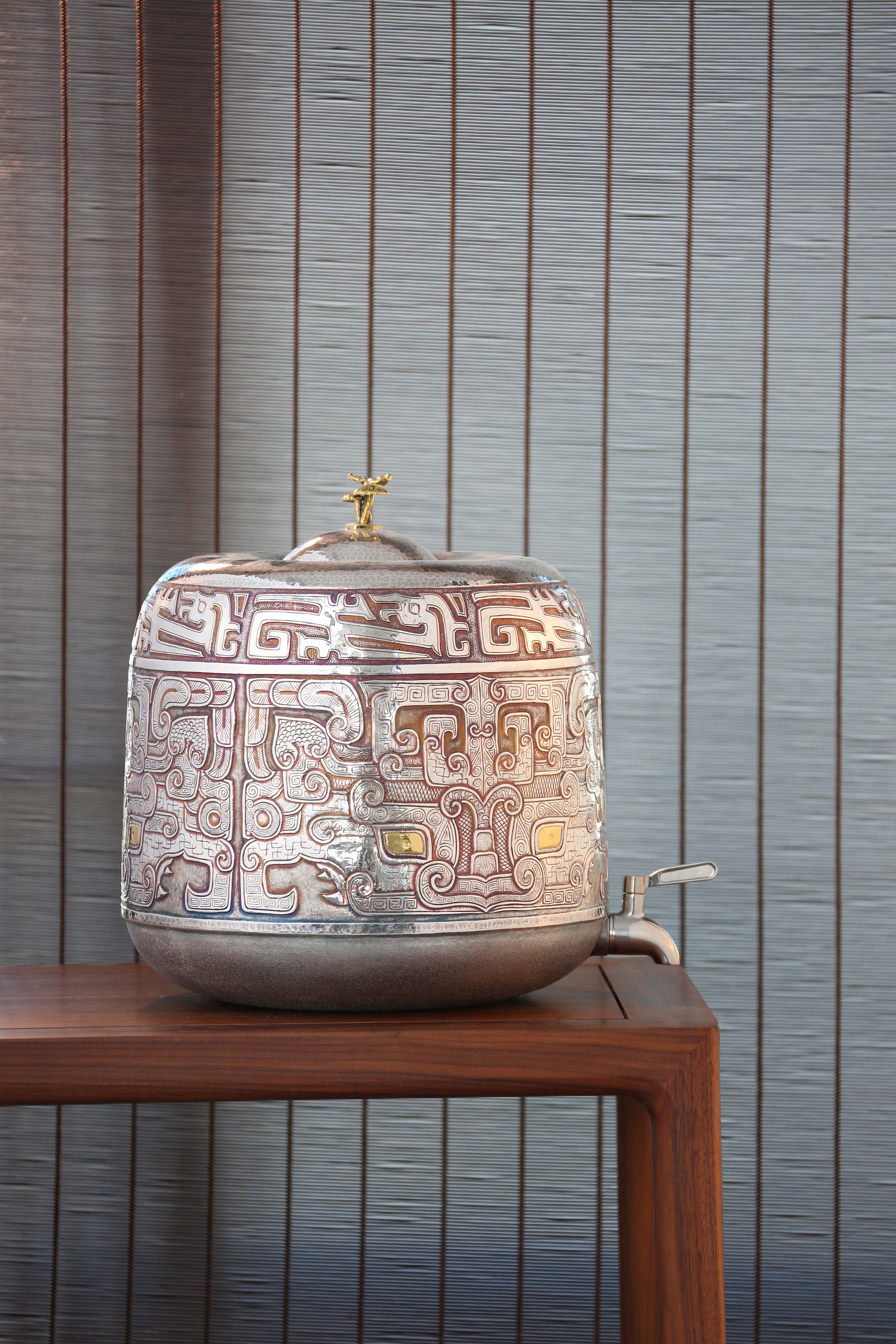
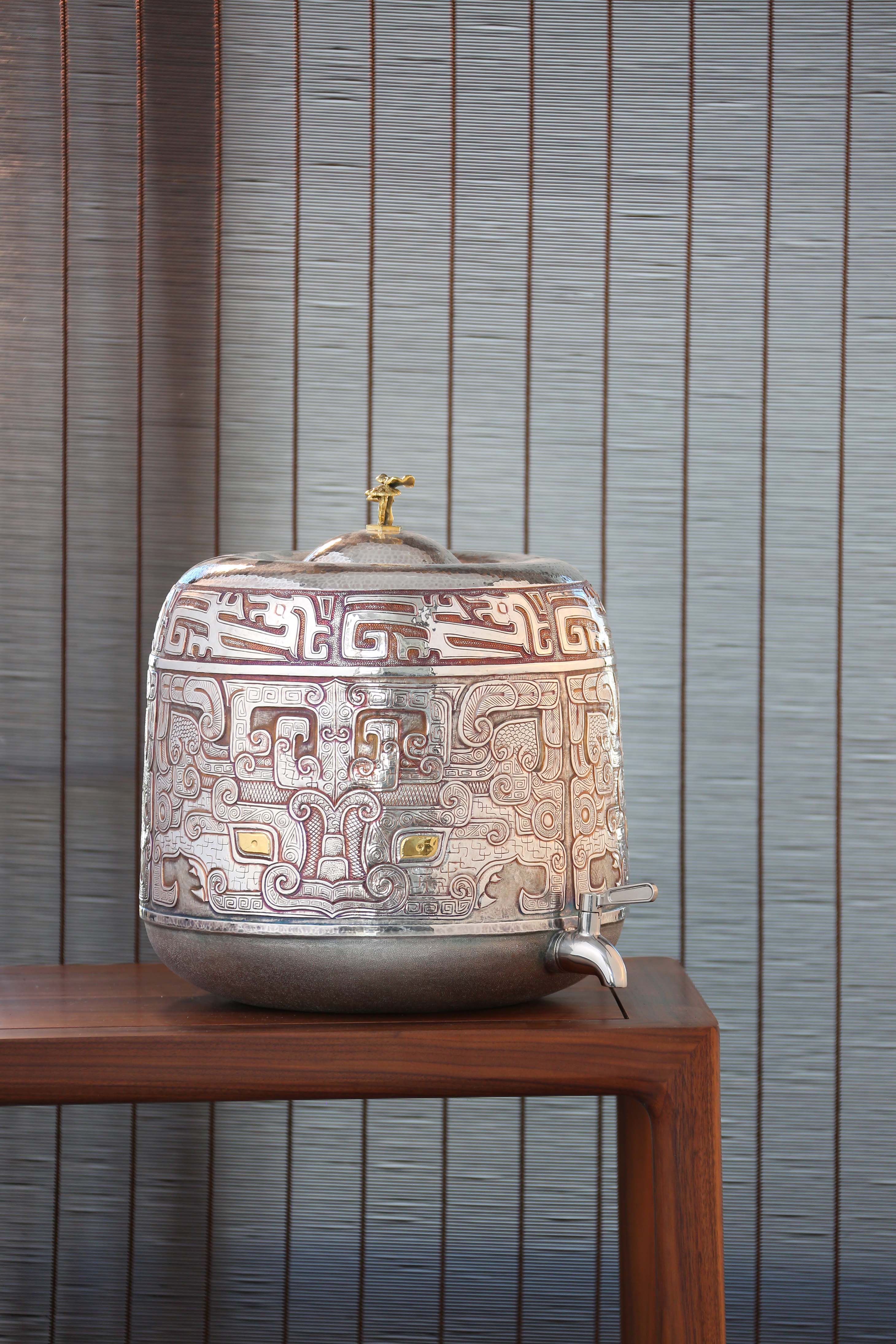
Lingzhi Picking Pot | Pure Silver








Lingzhi Picking Pot | Pure Silver
Vessel Type: Cauldron
Artist: dayatang / Li Fuming,ICH Inheritor of Silverware Forging Craft
Material: Silver (99.99% Purity)
Specifications :
Total weight : 3018g Capacity : 15000ml
Diameter : 28cm (Diameter) Height : 31cm (Overall height)
A large pure silver water vat is decorated with lingzhi mushrooms. Lingzhi was popular during the Ming and Qing dynasties. As an auspicious herb, lingzhi was a common motif in Ming dynasty decorative arts, symbolizing longevity and good fortune. The combination of lingzhi and vines symbolizes immortal longevity. Lingzhi combined with the character for "longevity" and bamboo symbolizes the blessings of immortals for long life.
The body of the pot is engraved with a taotie relief. The taotie pattern has been passed down for thousands of years and was popular from the Shang Dynasty to the early Western Zhou Dynasty.
The "Taotie" is highly decorative and is often used as the main pattern on artifacts. During the Shang and Zhou dynasties, the "Taotie" pattern on bronze artifacts was used to express the "mysterious majesty" of royal power. The pattern conveys majesty, will, honor and hope.
Ancient people attributed many inexplicable phenomena to the power of gods. They were filled with awe for the gods, and the animals on bronze artifacts were believed to communicate with the gods. Therefore, these strange animal patterns represented mystery and power.
In many ancient myths, the sun is referred to as the "eye of heaven." For example, the sun god in Brahmanism is also called the "eye of heaven" or the "eye of the world." Scholars holding this view believe that the Taotie pattern in the traditional sense is not merely a beast-face pattern; the Taotie should belong to the category of heavenly gods or sun gods, and the emphasis on the eyes in the Taotie pattern is a description of its characteristic as a sun god—light.
This teapot has an ancient and majestic design, which has now been integrated into modern life.
Produced by Dayatang, this is a representative work by Li Fuming, an inheritor of intangible cultural heritage.
Vessel Type: Cauldron
Artist: dayatang / Li Fuming,ICH Inheritor of Silverware Forging Craft
Material: Silver (99.99% Purity)
Specifications :
Total weight : 3018g Capacity : 15000ml
Diameter : 28cm (Diameter) Height : 31cm (Overall height)
A large pure silver water vat is decorated with lingzhi mushrooms. Lingzhi was popular during the Ming and Qing dynasties. As an auspicious herb, lingzhi was a common motif in Ming dynasty decorative arts, symbolizing longevity and good fortune. The combination of lingzhi and vines symbolizes immortal longevity. Lingzhi combined with the character for "longevity" and bamboo symbolizes the blessings of immortals for long life.
The body of the pot is engraved with a taotie relief. The taotie pattern has been passed down for thousands of years and was popular from the Shang Dynasty to the early Western Zhou Dynasty.
The "Taotie" is highly decorative and is often used as the main pattern on artifacts. During the Shang and Zhou dynasties, the "Taotie" pattern on bronze artifacts was used to express the "mysterious majesty" of royal power. The pattern conveys majesty, will, honor and hope.
Ancient people attributed many inexplicable phenomena to the power of gods. They were filled with awe for the gods, and the animals on bronze artifacts were believed to communicate with the gods. Therefore, these strange animal patterns represented mystery and power.
In many ancient myths, the sun is referred to as the "eye of heaven." For example, the sun god in Brahmanism is also called the "eye of heaven" or the "eye of the world." Scholars holding this view believe that the Taotie pattern in the traditional sense is not merely a beast-face pattern; the Taotie should belong to the category of heavenly gods or sun gods, and the emphasis on the eyes in the Taotie pattern is a description of its characteristic as a sun god—light.
This teapot has an ancient and majestic design, which has now been integrated into modern life.
Produced by Dayatang, this is a representative work by Li Fuming, an inheritor of intangible cultural heritage.






Frequently asked questions
Use the FAQ section to answer your customers' most frequent questions.
Order
Yes, we ship all over the world. Shipping costs will apply, and will be added at checkout. We run discounts and promotions all year, so stay tuned for exclusive deals.
It depends on where you are. Orders processed here will take 5-7 business days to arrive. Overseas deliveries can take anywhere from 7-16 days. Delivery details will be provided in your confirmation email.
You can contact us through our contact page! We will be happy to assist you.
